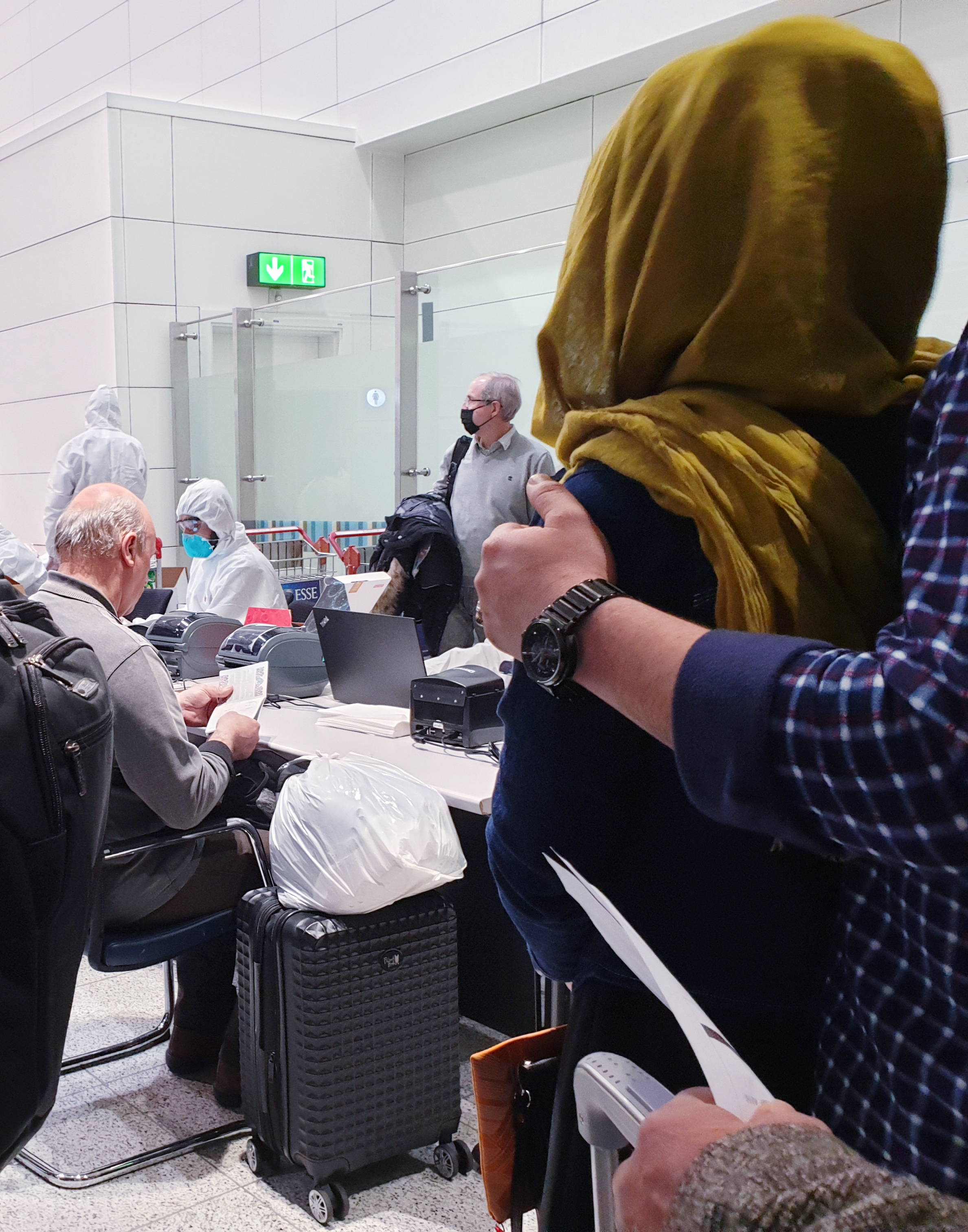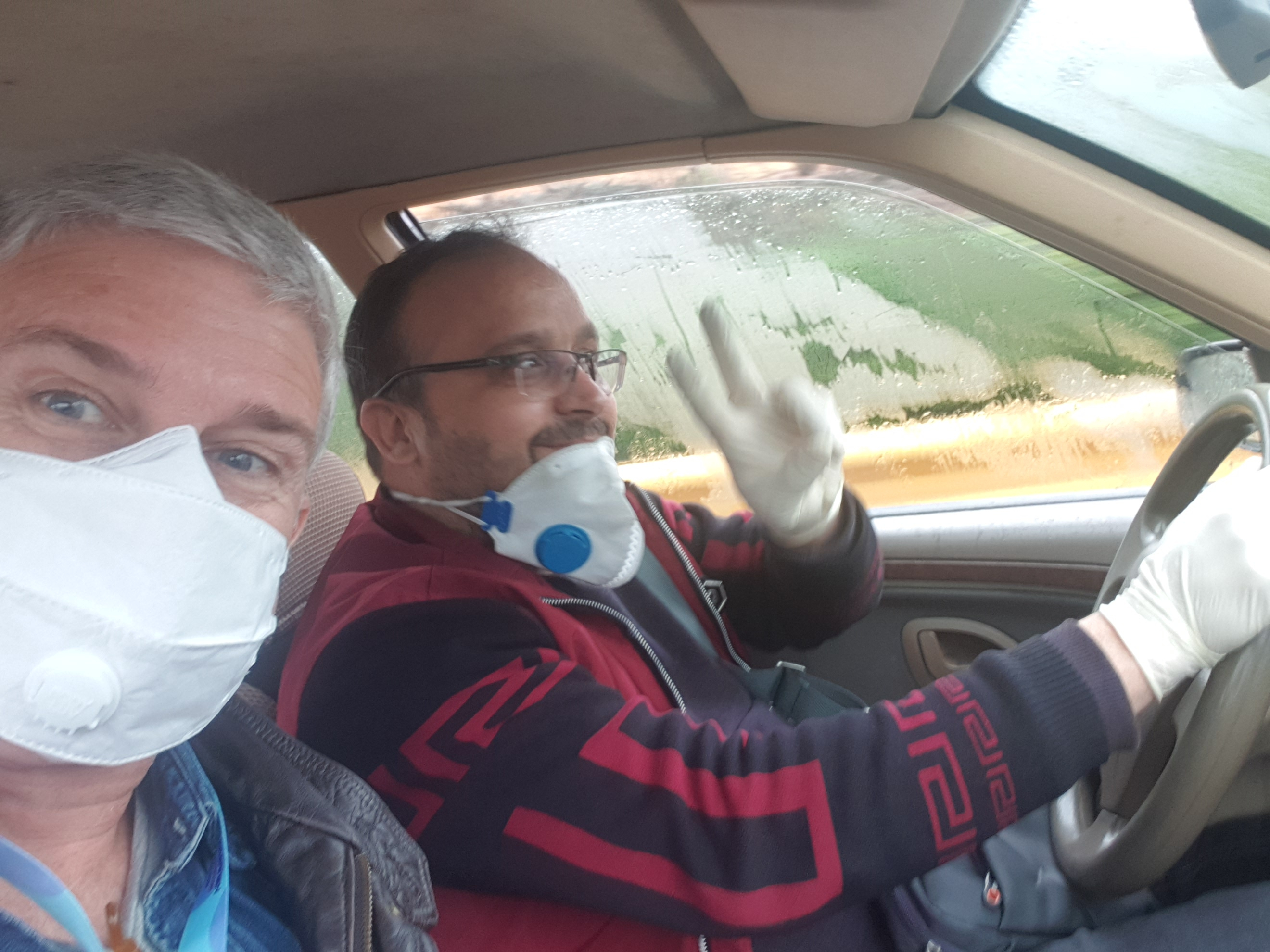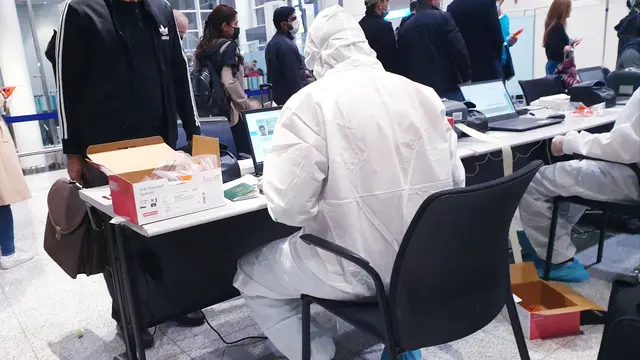Perhaps it was simply the act of putting the orange cones around the plane's wing as the seat belt signs went off, or the way the ground-crew member dropped them down lazily onto the rain-soaked runway, as if to say: "This plane is not going anywhere."
In theory, we should not have been allowed to board the plane at Tehran's international airport bound for Dubai as the United Arab Emirates had announced an hour earlier that all flights to and from Iran had been suspended due to the novel coronavirus outbreak.
Everyone was surprised, as if it was too good to be true, a mistake that would be rectified any moment.

A nasal swab vial used to diagnose upper respiratory tract infections. Jack Barton /CGTN
Turkey, Afghanistan, Iraq, Pakistan and Armenia had already completely sealed their land borders as airlines began cancelling Iran routes.
Passengers stranded from an earlier flight were already making a din in the terminal as our boarding passes were checked.
"I was on the last plane out during the Islamic Revolution in 1979; I never thought I would have to go through this again," said an Iranian-American businessman standing next to me in the line who has just paid 4,500 U.S. dollars for a seat on what was theoretically a budget airline after his original carrier, Turkish Airlines, canceled all flights for Iran.
As we waited, it was confirmed that Iran's deputy health minister, who had one day earlier perspired profusely through the mid-day press conference on the coronavirus, had contracted the virus.
Iran had quickly become the epicenter of the regional outbreak, with the death toll second only to China's less than a week after the first cases were reported.
A cleaner strolled through the terminal looking relaxed among the tense faces, as if the occupants of gate 21 were collectively holding their breath.
Some wore masks, and goggles, plastic gloves; some took no precautions at all.
It was only once the doors were closed the captain was told flight permission had been denied.

Passengers on the last flight from Iran to Dubai fill out details of their movements and health before a swab test. Jack Barton /CGTN
A flight crew attendant announced we would have to disembark soon.No one complained. There was a sense of resignation inside the craft's dank interior, so crammed with people and baggage that a cage full of chickens would not have looked out of place.
Then the captain's voice crackled through the cabin to say he was trying to get permission from Dubai to be the last flight out.
No one rejoiced.Surely this would also be denied.An hour and a half of watching the rain later, the captain teasingly announced he would introduce the crew who would assist us on our flight to Dubai.Rapturous applause and cheers rang out as the last plane from Iran to the UAE began to move.
In Dubai, dozens of health workers in hooded hazard suits, masks, gloves and goggles were waiting.
Nasal swabs that induced eye-watering sneezing fits were carried out along with hours of paperwork.No one complained.The thoroughness of the testing was re-assuring and also a pointed reminder of how ill-prepared Iran seemed in comparison to deal with the emerging health crisis in the country.

Reporter Jack Barton is driven to the airport by an Iranian driver wearing a mask and gloves. Jack Barton/CGTN
I waited for the test results while watching humorous WhatsApp videos sent by Iranian friends of all the novel ways people avoided shaking hands, from fist and even buttocks bumps, to foot taps.
The videos were funny, though the messages were not.
"It's becoming serious," my Iranian producer wrote.
"It is," I tappedback, having received the all clear to board my next plane to South Korea, also facing flight bans from some countries.
As East Asia throws a mighty effort into containing the virus, events in the Middle East, six days of reporting from Iran and a short flight served as a sharp reminder that the fight to contain coronavirus is far from over, and in some corners of the world, where the health systems are already in crisis, the fight is just beginning.
 简体中文
简体中文





